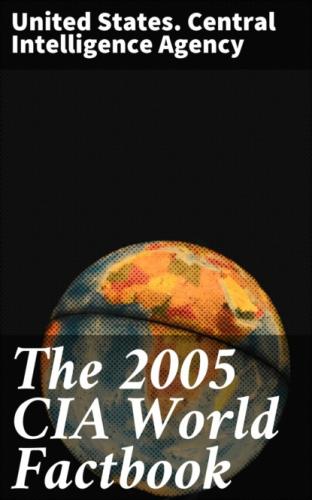Pacific Economic Cooperation) forum. Plans for the future include
upgrading the labor force, reducing unemployment, strengthening the
banking and tourist sectors, and, in general, further widening the
economic base beyond oil and gas.
GDP (purchasing power parity):
$6.842 billion (2003 est.)
GDP - real growth rate:
3.2% (2003 est.)
GDP - per capita:
purchasing power parity - $23,600 (2003 est.)
GDP - composition by sector:
agriculture: 5%
industry: 45%
services: 50% (2001 est.)
Labor force:
158,000
note: includes foreign workers and military personnel; temporary
residents make up about 40% of labor force (2002 est.)
Labor force - by occupation:
agriculture, forestry, and fishing 10%, production of oil, natural
gas, services, and construction 42%, government 48% (1999 est.)
Unemployment rate:
3.2% (2002 est.)
Population below poverty line:
NA
Household income or consumption by percentage share:
lowest 10%: NA
highest 10%: NA
Inflation rate (consumer prices):
0.3% (2003 est.)
Budget:
revenues: $4.9 billion
expenditures: $4.2 billion, including capital expenditures of $1.35
billion (2003 est.)
Agriculture - products:
rice, vegetables, fruits, chickens, water buffalo
Industries:
petroleum, petroleum refining, liquefied natural gas, construction
Industrial production growth rate:
5% (2002 est.)
Electricity - production:
2.458 billion kWh (2002)
Electricity - production by source: fossil fuel: 100% hydro: 0% nuclear: 0% other: 0% (2001)
Electricity - consumption:
2.286 billion kWh (2002)
Electricity - exports:
0 kWh (2002)
Electricity - imports:
0 kWh (2002)
Oil - production:
204,000 bbl/day (2003 est.)
Oil - consumption:
13,000 bbl/day (2001 est.)
Oil - exports:
199,000 bbl/day (2003)
Oil - imports:
NA
Oil - proved reserves:
1.255 billion bbl (1 January 2002)
Natural gas - production:
10.35 billion cu m (2001 est.)
Natural gas - consumption:
1.35 billion cu m (2001 est.)
Natural gas - exports:
9 billion cu m (2001 est.)
Natural gas - imports:
0 cu m (2001 est.)
Natural gas - proved reserves:
315 billion cu m (1 January 2002)
Exports:
$7.7 billion f.o.b. (2003 est.)
Exports - commodities:
crude oil, natural gas, refined products
Exports - partners:
Japan 38.1%, South Korea 14%, Australia 11.2%, US 8.6%, Thailand
7.9%, Indonesia 5.9%, China 4.5% (2004)
Imports:
$5.2 billion c.i.f. (2003)
Imports - commodities:
machinery and transport equipment, manufactured goods, food,
chemicals
Imports - partners:
Singapore 32.7%, Malaysia 21.2%, UK 8.3%, Japan 7.2% (2004)
Debt - external:
$0
Economic aid - recipient:
NA
Currency (code):
Bruneian dollar (BND)
Currency code:
BND
Exchange rates:
Bruneian dollars per US dollar - 1.6902 (2004), 1.7422 (2003),
1.7906 (2002), 1.7917 (2001), 1.724 (2000)
Fiscal year:
calendar year
Communications Brunei
Telephones - main lines in use:
90,000 (2002)
Telephones - mobile cellular:
137,000 (2002)
Telephone system:
general assessment: service throughout the country is excellent;
international service is good to East Asia, Europe, and the US
domestic: every service available
international: country code - 673; satellite earth stations - 2
Intelsat (1 Indian Ocean and 1 Pacific Ocean); digital submarine
cable links to Malaysia, the Philippines, and Singapore (2001)
Radio broadcast stations:
AM 3, FM 10, shortwave 0 (1998)
Radios:
329,000 (1998)
Television broadcast stations:
2 (1997)
Televisions:
201,900 (1998)
Internet country code:
.bn
Internet hosts:
6,409 (2003)
Internet Service Providers (ISPs):
2 (2000)
Internet users:
35,000 (2002)
Transportation Brunei
Highways: total: 2,525 km paved: 2,525 km unpaved: 0 km (2000)
Waterways:
209 km (navigable by craft drawing less than 1.2 m) (2004)
Pipelines:
gas 665 km; oil 439 km (2004)
Ports and harbors:
Lumut, Muara, Seria
Merchant marine:
total: 8 ships (1,000 GRT or over) 465,937 GRT/413,393 DWT
by type: liquefied gas 8
foreign-owned: 8 (United Kingdom 8) (2005)
